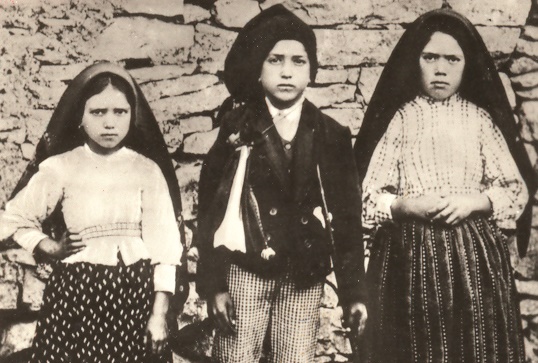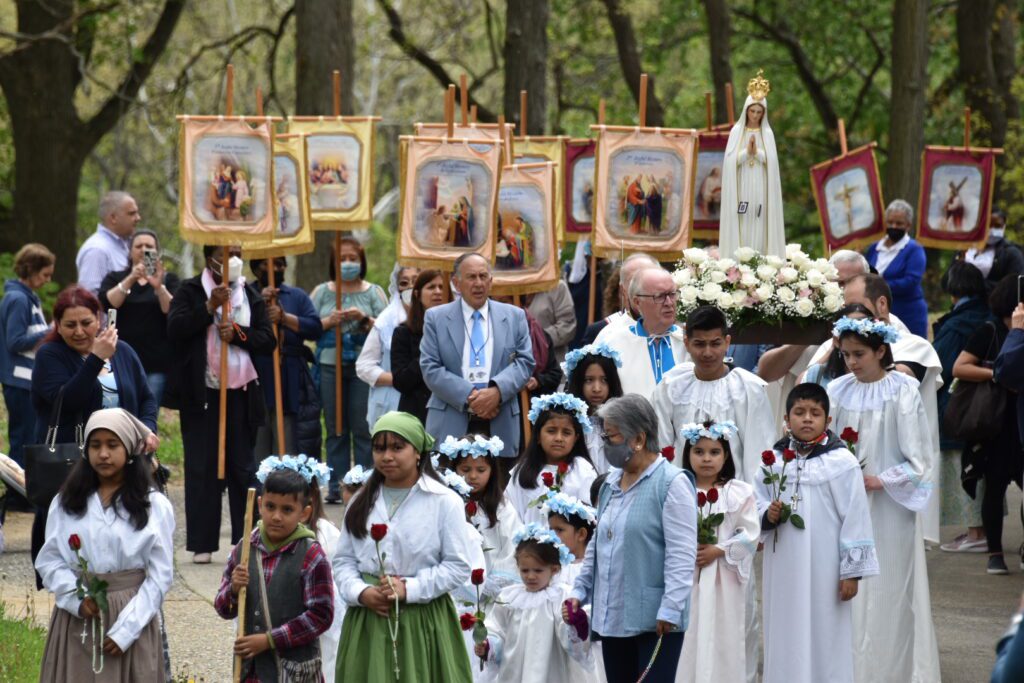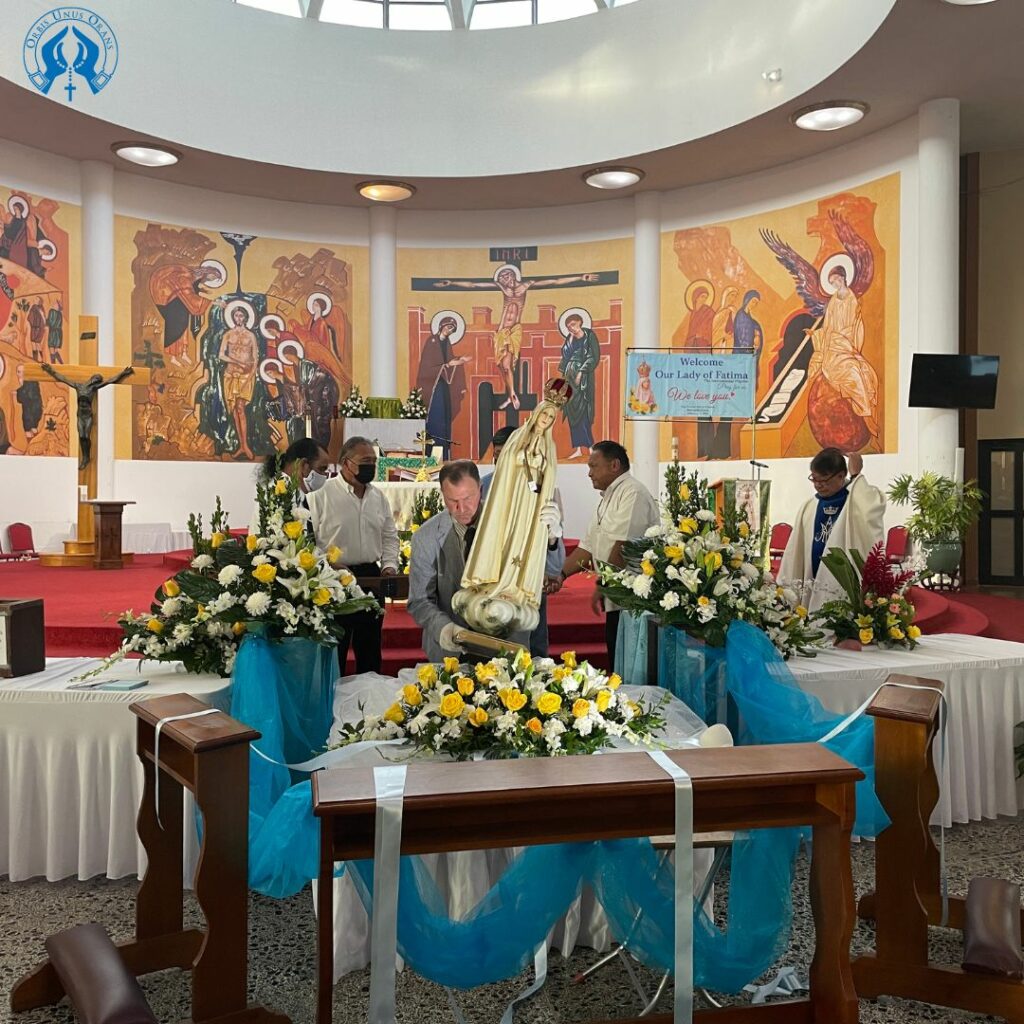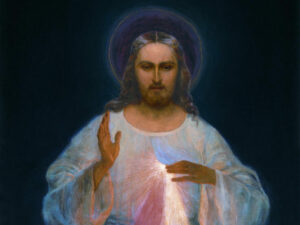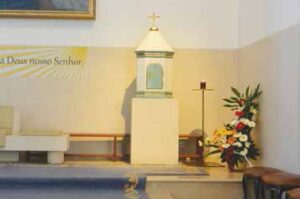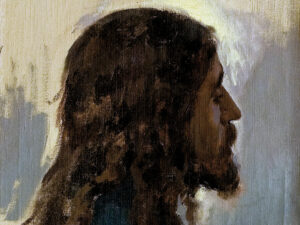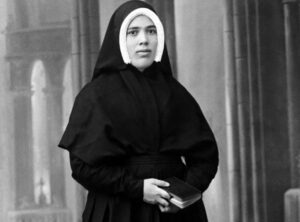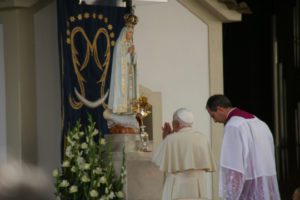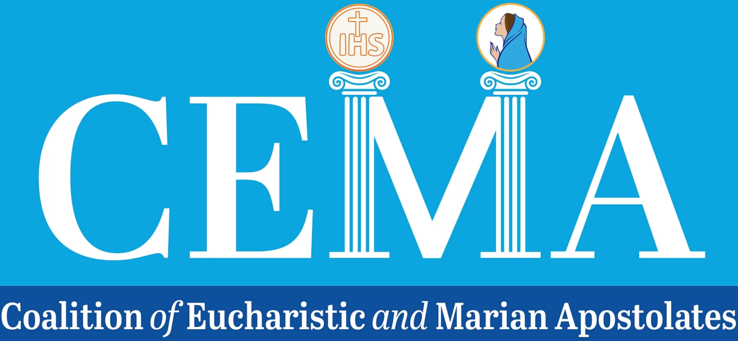by Donal Anthony Foley –


As Christmas Day approaches, it’s good to adopt the mind and spirit of the Church in anticipation of this great and festive event. One way we can do this is by following the Mass readings of the days from Dec. 17 to 25 and by reflecting on what are known as the Great Advent Antiphons or “O Antiphons.”
These antiphons, thought to date back as far as the sixth century, received this title because in Latin each of them begins with the letter “O”. In monasteries and convents, they are sung during the last seven days of Advent at the liturgical celebration of Vespers, or evening prayer, as an accompaniment to the Magnificat.
An antiphon is a short chant, which is usually sung as a refrain to verses from the psalms, particularly during Lauds (morning prayer) and Vespers, as part of Liturgy of the Hours; but they can also be said or chanted during Holy Mass. The Magnificat, the canticle of Mary from the first chapter of St. Luke’s Gospel, is said or sung each evening during Vespers.
It is worth noting the close link between the O Antiphons and the Magnificat, a point which underlies the intimacy between Jesus and Mary, an intimacy that is particularly pronounced in the celebration of Christmas.
Each of the O Antiphons is a particular title given to Christ, based on a passage from the Bible, principally from the writings of the prophet Isaiah. They are:
- O Sapientia (O Wisdom)
- O Adonai (O Lord)
- O Radix Jesse (O Root of Jesse)
- O Clavis David (O Key of David)
- O Oriens (O Dayspring)
- O Rex Gentium (O King of the Nations)
- O Emmanuel (O God with us).
The O Antiphons are a way for the Church to express in the liturgy the ancient Messianic hope of Israel, which will be, or has been, fulfilled in Christ. This is appropriate during Advent, a time of expectancy before the birth of Christ and also a time of reflection on His Second Coming at the end of time.
The O Antiphons are also found in the Christmas hymn, “O Come, O Come, Emmanuel,” which is often sung during the latter part of Advent. The verses of this hymn begin with the words “O Come” as a way of expressing the longing of the Church for the coming of Christ as the Messiah.
Looking at the O Antiphons in more detail, we can see why the Church has adopted them, and why, in the days leading up to Christmas Day, they are a very suitable accompaniment to the chanting of the Magnificat during Advent Vespers.
The first O Antiphon, “O Sapientia” (O Wisdom), is based on a passage from Isaiah (11:2-3), along with passages from Sirach/Ecclesiasticus (24:1-5) and the Wisdom of Solomon (8:1). A common English translation of the original Latin runs as follows:
O Wisdom, coming forth from the mouth of the Most High,
reaching from one end to the other,
mightily and sweetly ordering all things:
Come and teach us the way of prudence.
Another of the O Antiphons describes the coming Messiah as a “root from the stump of Jesse” from the prophet Isaiah, who goes on to speak of the “spirit of wisdom” resting on him (11:2-3) and of his being “excellent in wisdom.” (28:29)
In connection with Our Lady, one of the titles given to her in the Litany of Loreto is “Seat of Wisdom.” Traditionally, this title has been represented artistically by images of the Blessed Virgin seated on a throne with the Christ Child – who is Divine Wisdom – on her lap. Thus, we have a link in this title to both the O Antiphon and to Christmas and the Mother and Child of Bethlehem.
Another of the O Antiphons, “O Clavis David” (O Key of David), in English translation:
O Key of David and scepter of the House of Israel;
you open and no one can shut;
you shut and no one can open:
Come and lead the prisoners from the prison house,
those who dwell in darkness and the shadow of death.
This antiphon is based on Isaiah 9:7, 42:7 and in particular, 22:22, which reads: “And I will place on his shoulder the key of the house of David; he shall open, and none shall shut; and he shall shut, and none shall open.”
This is a historical reference to the role of Eliakim, the son of Hilkiah, but it also points prophetically to Christ who has the universal power of “opening and closing,” a power which He passed on in turn to St Peter and his successors, the popes.
This is clear from the dialogue between Christ and Peter in St. Matthew’s Gospel, after Peter had expressed his conviction that Jesus was the Christ, the Messiah, the Son of the living God. Jesus described Peter as “the rock” on which he would build His church, and promised him “the keys of the kingdom of heaven,” (which is in another sense the Church), along with the power to bind and loose. (Mt 16:18-19)
This antiphon is also linked to another title of Our Lady’s in the Litany of Loreto, “Tower of David,” a descriptive phrase taken from the Song of Solomon (4:4). According to some interpretations given by various writers, this title can be applied symbolically to Mary as the one who, like a high tower, gives protection to all those in danger, and with particular reference to Christmas, her womb is to be regarded as the source of life and protection for Jesus.
To sum up, the O Antiphons are a beautiful and moving expression of the Church’s beliefs and hopes that are, at this most special time of the year, centered especially on Jesus and Mary.
Donal Anthony Foley is a regular contributor to Soul Magazine and appears in many blogs and publications. He is the author of a number of books on Marian Apparitions, and maintains a related web site at www.theotokos.org.uk. His updated book on the above topic, Medjugorje Complete, has recently been published by Angelico Press. He has also written two time-travel/adventure books for young people, and the third in the series is due to be published shortly – details can be seen at: http://glaston-chronicles.co.uk.


